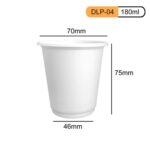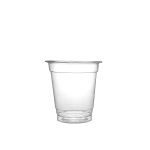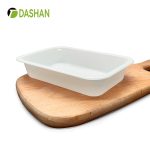Quick Summary
PET cups are becoming the go-to choice for modern coffee shops, offering clarity, strength, and full recyclability. Their crystal-clear appearance enhances beverage presentation, while custom printing options, such as café logos and seasonal designs, strengthen brand identity. Unlike traditional plastics, PET cups are lightweight yet durable, keeping both iced and specialty drinks safe and appealing. With growing consumer demand for sustainable packaging, PET cups support recycling systems and align with green initiatives, helping coffee shops reduce plastic waste while maintaining professional, customer-focused service.
Introduction
Walk into any modern coffee shop, and one thing stands out immediately: the cup in your hand. Whether it’s a cold brew topped with foam, an iced latte with caramel drizzle, or a fruity seasonal refresher, the choice of cup defines both presentation and experience. For coffee shops across the globe, PET (Polyethylene Terephthalate) cups have become the standard for serving cold beverages. They offer clarity, durability, custom branding potential, and align with growing sustainability goals through recyclability.
This article explores the role of PET cups in coffee shops, their practical advantages, sustainability contributions, and how they have evolved into a key part of a café’s branding strategy.
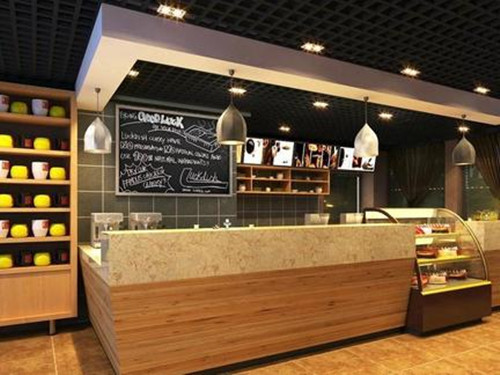
1. What Are PET Cups?
PET cups are made from Polyethylene Terephthalate, a highly durable, lightweight, and fully recyclable plastic widely used in the food and beverage industry. Unlike standard plastics, PET is known for its:
-
Crystal-clear transparency – enhancing beverage presentation.
-
Impact resistance – preventing cracks and spills.
-
Recyclability – part of the circular economy, especially when converted into RPET (Recycled PET).
For coffee shops, these attributes make PET cups a go-to solution for iced coffee, frappes, bubble tea, smoothies, and cold teas.
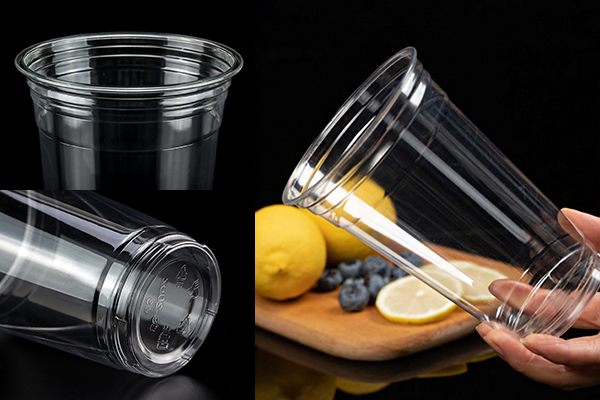
2. Why Coffee Shops Prefer PET Cups
a) Superior Clarity and Aesthetic Appeal
Coffee is no longer just about taste—it’s about visual experience. PET cups showcase the vibrant layers of drinks: the golden hues of iced Americano, the contrast of espresso with milk, or colorful fruit-infused teas. Customers often share these “Instagram-worthy” drinks online, giving cafés free marketing.
b) Branding and Logo Printing
Coffee shops see cups as mobile billboards. By printing their logo, tagline, or seasonal graphics on PET cups, cafés strengthen brand recognition.
-
A minimalistic logo on a clear PET cup gives a premium feel.
-
Seasonal prints (pumpkins in autumn, snowflakes in winter) create customer excitement.
-
Customized sleeves or eco-friendly lids further reinforce branding.
c) Durability and Functionality
Unlike paper cups that weaken with condensation, PET cups stay sturdy. They resist leaks, maintain shape, and allow baristas to stack drinks securely for delivery or takeout.
d) Versatility
From iced lattes to nitro cold brews, smoothies, or even desserts like tiramisu-in-a-cup, PET cups adapt to a variety of offerings. Many coffee shops also use dome lids for whipped-cream topped beverages, enhancing presentation.
3. The Sustainability Conversation
Sustainability is a defining issue in today’s foodservice industry. While critics often point out the environmental impact of plastics, PET stands apart because of its strong recycling infrastructure.
-
Recyclable: PET is among the most recycled plastics worldwide.
-
Lightweight: Reduces transport emissions compared to heavier alternatives.
-
Transition to RPET: Many coffee chains now adopt RPET cups, which are made from recycled bottles, further reducing carbon footprint.
Case Example: In Europe, Starbucks introduced cold cups made with 50% RPET as part of their sustainability roadmap. This shows how coffee chains align brand image with eco-conscious values.
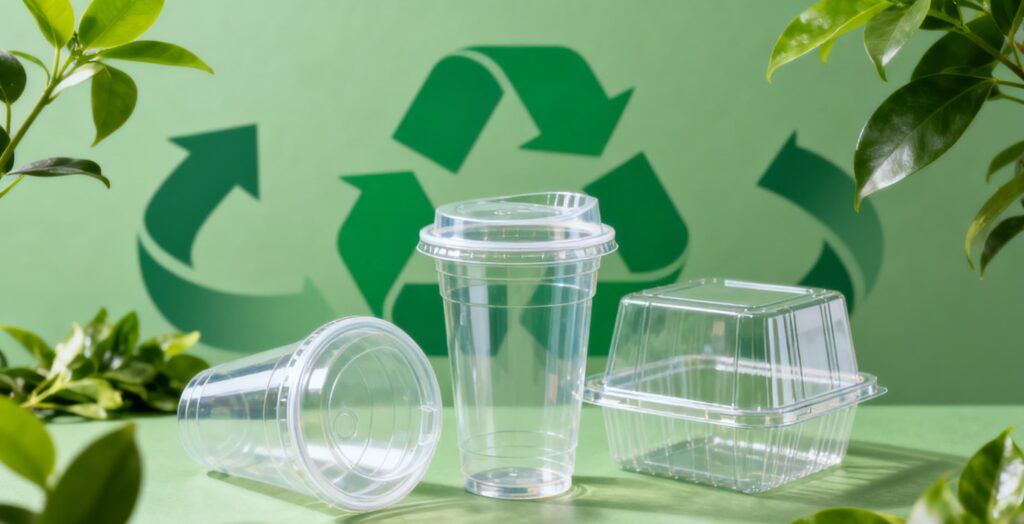
4. PET Cups vs. Paper Cups in Coffee Shops
| Feature | PET Cups | Paper Cups |
|---|---|---|
| Clarity | Transparent (showcases drinks) | Opaque |
| Durability | Withstands condensation, doesn’t weaken | May soften with moisture |
| Branding | Easy logo printing, vibrant graphics | Also printable, but less visually striking |
| Recyclability | Widely recyclable | Often lined with plastic, harder to recycle |
| Customer Perception | Premium, modern | Traditional, eco-friendly look |
Conclusion: For iced beverages, PET cups are the undisputed winner.
5. Enhancing Customer Experience with PET Cups
A cup is more than just a container—it’s part of the coffee ritual. PET cups enhance this in several ways:
-
Transparency: Customers can see drink layers, boosting perceived value.
-
Ergonomics: Smooth edges and lightweight design make it comfortable to hold.
-
Customization: Space for customer names or QR codes for loyalty programs.
-
Delivery-Friendly: PET cups maintain structure during delivery, ensuring customers enjoy drinks as intended.
6. Branding Strategy: Coffee Shop Logos on PET Cups
In a competitive market, branding is everything. A coffee shop’s logo on a PET cup does more than identify ownership:
-
Social Media Marketing: Customers post photos of beautifully designed cups on Instagram or TikTok.
-
Customer Loyalty: Familiarity with branded packaging builds trust.
-
Storytelling: Coffee shops often use cups to communicate sustainability messages, like “Made with 50% RPET” or “This cup is recyclable.”
-
Limited Editions: Seasonal logo designs (e.g., Valentine’s Day hearts or Christmas themes) create urgency and excitement.
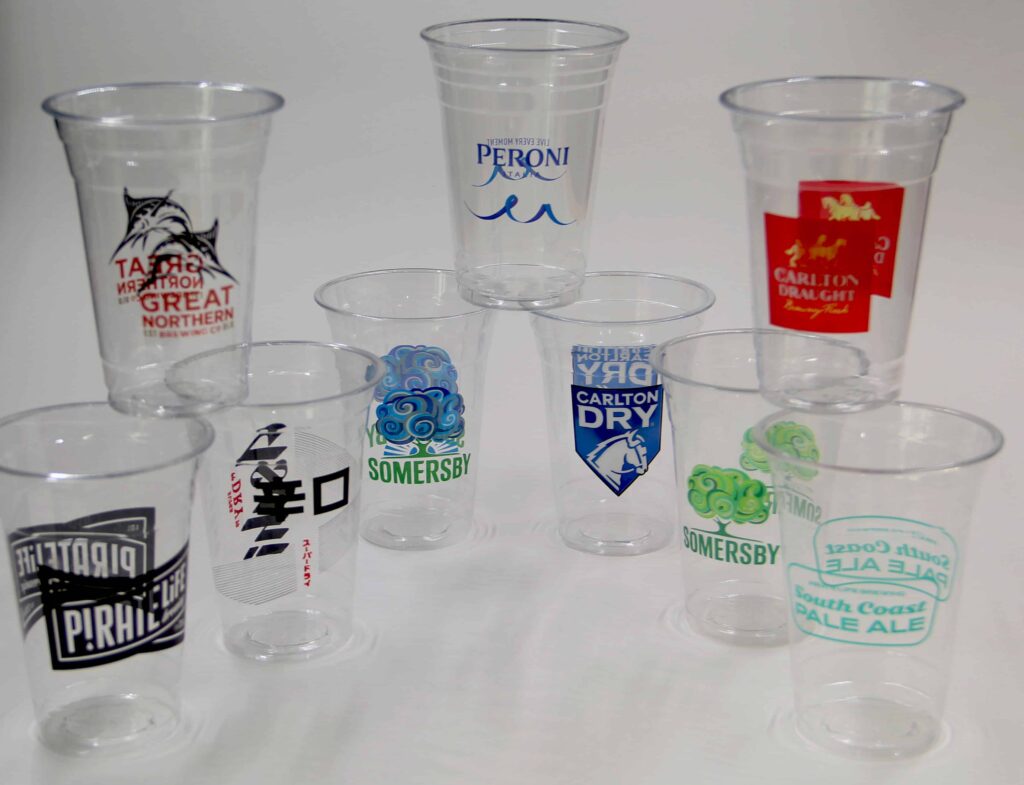
7. Cost Analysis: PET Cups in Coffee Shops
Coffee shop owners often evaluate PET cups based on cost vs. customer impact.
-
Unit Cost: PET cups are slightly higher than paper, but the added durability reduces waste.
-
Marketing ROI: Custom-printed cups act as moving advertisements, offering better returns than digital ads alone.
-
Bulk Purchasing: Many suppliers (like Xiamen Dashan) offer discounts for large orders, making PET cups economical for chains.
8. Future Trends: PET Cups in the Coffee Industry
-
RPET Integration: Expect more cups made with 50–100% recycled content.
-
Smart Packaging: QR codes on cups leading to promotions or loyalty apps.
-
Compostable Lids & Straws: Pairing PET cups with eco-friendly accessories.
-
Hyper-Customization: Short-run printing allows local cafés to feature their unique style.
9. Case Studies: PET Cups in Action 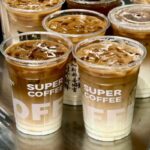
a) Independent Coffee Shop
A small café in Tokyo switched from paper to branded PET cups for iced lattes. Within three months, their Instagram engagement doubled as customers shared photos of drinks in clear cups featuring the café’s retro-style logo.
b) Global Chain
A U.S.-based chain introduced dome-lid PET cups for frappes. The result? A 20% increase in sales of topped drinks, since presentation was enhanced.
10. Xiamen Dashan: Reliable PET Cup Manufacturer
At Xiamen Dashan, we manufacture high-quality PET cups designed for coffee shops worldwide. Features include:
-
Custom printing for coffee shop logos.
-
Durable, crack-resistant PET material.
-
Sizes from 8oz to 24oz with flat or dome lids.
-
Eco-conscious RPET options.
By combining performance with branding, Dashan PET cups help coffee shops deliver unforgettable customer experiences.

Quick FAQ
Q1: Are PET cups safe for food and beverages?
Yes, PET cups are FDA and EU approved for food contact.
Q2: Can PET cups be recycled?
Absolutely. PET is one of the most widely recycled plastics worldwide.
Q3: Do PET cups work for hot drinks?
No, they are best for cold beverages. For hot drinks, paper or PP cups are more suitable.
Q4: Can I print my coffee shop logo on PET cups?
Yes, PET cups can be custom-printed in single or multi-color designs.
Conclusion
In today’s competitive coffee shop industry, PET cups are more than just packaging—they’re tools for branding, sustainability, and customer satisfaction. With their clarity, durability, and recyclability, PET cups enhance drink presentation while promoting eco-friendly practices. Coffee shops that adopt customized PET cups with logos not only serve beverages—they serve a brand story in every sip.
References
-
Plastics Europe – PET Recycling Data
https://plasticseurope.org/ -
Starbucks Sustainability Initiatives
https://stories.starbucks.com/stories/sustainability/ -
EPA – Benefits of Recycling Plastics
https://www.epa.gov/recycle -
Foodservice Packaging Institute
https://www.fpi.org/

